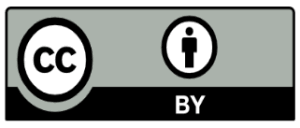AN ANALYSIS STUDY ON THE NEED OF INVESTING IN THE CONTEMPORARY WAQF FIELDS ON THE KENYAN COAST
DOI:
https://doi.org/10.55327/jaash.v7i4.251Abstract
The first Waqf to be established in this region was the Friday congregational mosque at Shanga – a village in Pate Island in Lamu County, dating back to 870A.D. This research entails highlighting the bases of Waqf in Islamic Jurisprudence; it also gives a historical view on the establishment of Awqaf in the Kenyan Coast. The researcher shall also highlight the traditional usage of Waqf usufruct, and finally he shall propose various contemporary Waqf fields in the Coast of Kenya, which people should invest in them to improve their living standards.
Methodology used in this research is the induction method where ideas of scholars are analyzed and historical method. This method is used to narrate the advent of Muslims in the Kenyan Coast as well as the establishment of the Awqaf in the region.
The study revealed that there is need to invest in the contemporary Waqf fields to maximize the usage of regional waqf properties. The findings of this study would contribute to the understanding of challenges in utilization of Waqf property. It also contributes to the betterment of Waqf usage for the benefit of Ummah.
The study recommends that, there is a need of initiating a collective Waqf projects (Waqf-al-Jamai) through contributions from different donors to establish Waqf prjects, Ulamaas and preachers should create awareness on the importance of investing in the contemporary Waqf fields ,seminars and research should be conducted on Awqaf.
Downloads
Published
How to Cite
Issue
Section
License
Copyright (c) 2022 Ali Hemed Awadh

This work is licensed under a Creative Commons Attribution 4.0 International License.
Copyrights for articles published in Journal of Asian and African Social Science and Humanities are retained by the authors, with first publication rights granted to the journal. The journal/publisher is not responsible for subsequent uses of the work. It is the author's responsibility to bring an infringement action if so desired by the author.
Articles published in Journal of Asian and African Social Science and Humanities are published under the Creative Commons Attribution (CC-BY) license, which permits others to distribute, remix, tweak, and build upon your work as long as they credit you for the original creation.
Â















